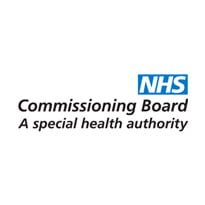New GP data set to assess quality
- 7 December 2012

The NHS Commissioning Board will require every GP to provide a “standardised routine set of data” to help assess their quality and it will be published online.
NHS CB national director of patients and information Tim Kelsey announced the plans to attendees at a Digital by Default conference in London this week.
He said the commissioning board will be requiring every primary care clinician to provide it with a “standardised routine set of data to learn more about their quality” and where the board can assist if standards are not good enough.
He used the example that currently about 2,000 people a year die because they have been prescribed anti-psychotic drugs when they have dementia.
“That’s bad practice bordering on negligence and at the moment we can’t tell which GPs are doing it,” he said.
He envisioned a future where that kind of information would be available online.
“At the moment we have not got transparency in any part of our health service. There’s no meaningful data on primary care, mental health, child services. It’s pretty much not available, but it does largely exist and we need to get the data liberated,” he explained.
“This is about the tools for a new health service. The commissioning board is based on two operating principles – transparency and participation – and in both cases we are deadly serious.”
Kelsey said the Mid Staffordshire NHS Foundation Trust inquiry, about which people will be hearing in the “next few weeks”, shows the importance of transparency in the health service.
“Data transparency is literally about life and death.
“It will be quite shocking that the NHS is now truly going to embrace the open data and transparency movement,” he added.
Kelsey also told the conference that his reference to a “paperless NHS by 2015” meant paperless referrals. This will be achieved through the re-launch of Choose and Book which he hoped would transform the way clinicians and patients engage with the health service.
He said he wants to rid hospital wards of “treasury tags and rubber bands” used to hold together piles of patient notes and start relying on a digital-based health service.




